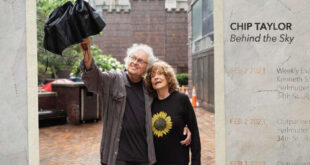Bennett Lincoff, former Director of Legal Affairs for New Media at ASCAP, has a plan for the licensing and regulation of digital music file-sharing on the Internet:
- Practically no one is satisfied with the rules governing online use of copyrighted musical works and sound recordings. Rights holders believe that the rules are inadequate to protect their ability to sell recorded music. Information technology firms and consumer electronics makers are concerned that they will not be permitted to develop new media or new markets. Webcasters are being driven out of business by statutory license fees that exceed their gross revenues. Those who survive must operate with unprecedented program content restrictions. And consumers are alarmed that the rules will expose them to liability for enjoying music when, where and how they want.
4 Despite the growing conflict between the music industry and each of these other groups, their interests are not necessarily incompatible. It is possible simultaneously to protect the integrity of copyrights, promote technological innovation, facilitate the growth of digital audio services, and meet consumer demand.
5 The problem is, however, that because of the Internet it will not be possible to prevent the widespread unauthorized distribution of recorded music in digital form.
6 This, in turn, jeopardizes the music industry’s $40-plus billion dollars in annual worldwide revenue from the sale of recordings.
7 The industry has responded with legislative proposals, technological access restrictions and anti-copying measures, and infringement litigation. Nonetheless, digital music piracy is on the increase and CD sales are in decline. It appears that the only effect — if not the intent — of the industry’s strategy has been to thwart development of a lawful market for the online use of music.
8 Simply put, the music industry soon may no longer be able to sustain its traditional sales-based revenue model. Neither law, nor technology, nor moral suasion will suffice.
9 An alternative to the sales-based revenue model is needed for online uses of music; an approach to rights management that will not depend on access restrictions or anti-copying technology for its success; one that is structured specifically to accommodate the changed circumstances imposed on the music industry by the emerging global digital network.
10 I suggest this:
11 Congress should create an online transmission right for musical works and sound recordings. This new right would replace the now-existing reproduction, performance and distribution rights in these works for online purposes only.
12 Licenses under the online transmission right would authorize all acts cognizable under the Copyright Law that may be involved in transmitting music to end users. Licenses would be granted without regard to the conduct of end users: It would no longer matter whether consumers only listened to online transmissions or also downloaded them.
13 The online transmission right should be subject to a statutory license and administered by a single rights collective on behalf of all rights holders of musical works and sound recordings.
14 Rights holders and service operators must cooperate in the development and deployment of a uniform rights management system for monitoring which works were transmitted and by whom. To this end, rights holders would identify the works in which they claim protection. They would also provide a technological means for marking individual works and tracking them when transmitted online. For their part, service operators wishing to qualify for the statutory license must ensure that they only transmit properly marked works and that they keep track of the works they transmit .
15 The statutory license fee for each service would be based on its revenue or its operating expenses, whichever is greater. Adjustments could be made to the fee to reflect differences among services in the prominence of their use of music as well as in the relative proportion of copyrighted and public domain works they transmit. Within this framework, the statutory license fee rate could be set by voluntary negotiations between the rights collective and service operator representatives. Failing voluntary agreement, the rate would be established by government-supervised arbitration following an evidentiary hearing.
16 In addition, a flat monthly license fee would be charged for members of peer-to-peer file sharing networks and similar online communities wishing to avail themselves of the statutory license.
17 Royalty distribution would be based on a full census of licensed transmissions. In this way, royalty payments would correspond precisely with online transmissions and they would be made only to those rights holders whose works were actually transmitted by licensed services. Disputes regarding royalty distribution could be settled either by voluntary agreement or by arbitration.
18 An online transmission right, collectively administered, and subject to a statutory license, is the best model for the administration of online rights in music and sound recordings. By these means, the ongoing public policy deadlock over the online use and protection of music could be broken and an online marketplace for music could flourish….
A very serious fleshing out of these themes follow. Two questions emerge immediately: why does he address music files only? How does he engorce the licensing requirement on decentralized P2P networks? (thanks to Kevin Marks)
 Blogcritics The critical lens on today's culture & entertainment
Blogcritics The critical lens on today's culture & entertainment



